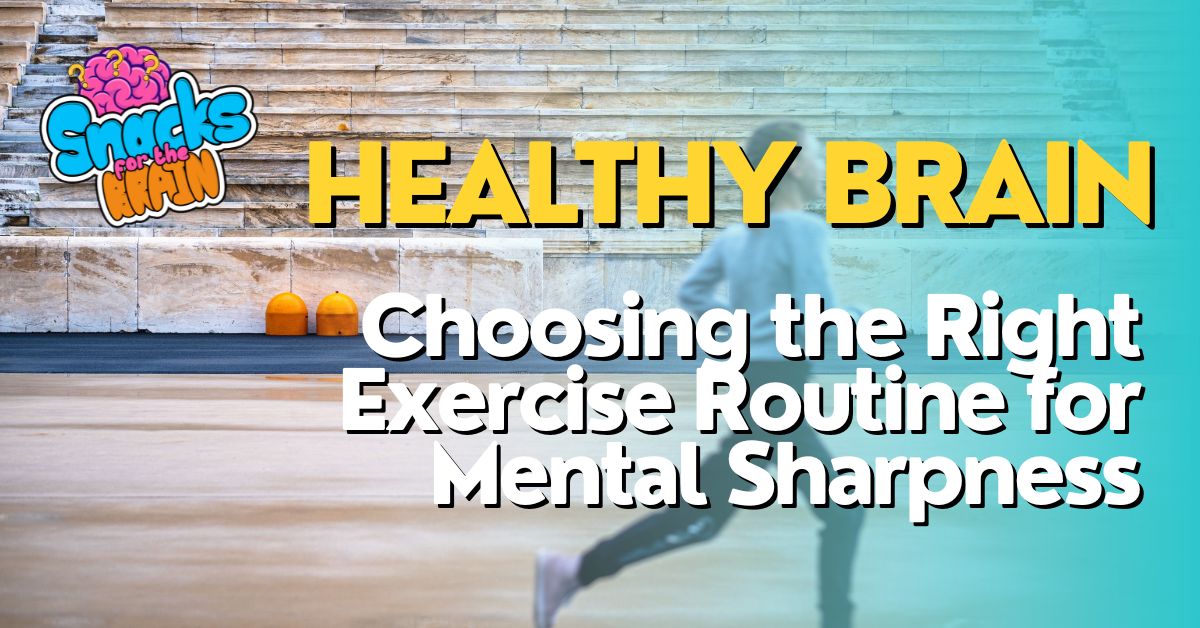Stress and cognitive decline are two interconnected topics that have gained significant attention in recent years. As our understanding of the brain and its functions continues to grow, it has become increasingly clear that stress can have a profound impact on cognitive health. In order to fully comprehend the relationship between stress and cognitive decline, it is important to delve into the basics of these concepts and explore the scientific evidence behind their connection.
Understanding the impact of stress on cognitive decline is crucial for several reasons. Firstly, cognitive decline is a growing concern in our aging population, with conditions such as Alzheimer’s disease and dementia becoming more prevalent. By understanding the role that stress plays in cognitive decline, we can potentially develop strategies to prevent or mitigate its effects. Secondly, stress is a common experience in our daily lives, and its effects on the brain can be far-reaching. By understanding how stress affects cognitive functioning, we can make informed decisions about managing stress and preserving our cognitive health.
Key Takeaways
- Stress is a natural response to challenging situations that can have negative effects on cognitive functioning.
- Chronic stress can lead to memory loss and other cognitive impairments.
- Cortisol, a hormone released during stress, can contribute to cognitive decline.
- Stressful life events can have a significant impact on cognitive functioning.
- Coping strategies such as exercise, mindfulness, and social support can help preserve cognitive function in the face of stress.
Understanding the Basics: What is Stress and Cognitive Decline?
Stress can be defined as the body’s response to a perceived threat or challenge. It is a natural physiological response that prepares us to either fight or flee from a dangerous situation. While acute stress can be beneficial in certain situations, chronic or prolonged stress can have detrimental effects on our physical and mental well-being.
Cognitive decline refers to a decline in cognitive abilities such as memory, attention, and problem-solving skills. It is often associated with aging, but can also be caused by various factors such as neurodegenerative diseases, traumatic brain injury, or chronic stress.
The Science of Stress: How it Affects the Brain
When we experience stress, our body releases stress hormones such as cortisol and adrenaline. These hormones trigger a series of physiological changes known as the stress response. The stress response is designed to help us deal with immediate threats by increasing heart rate, blood pressure, and alertness.
However, chronic stress can lead to dysregulation of the stress response system, resulting in long-term changes in the brain. Research has shown that chronic stress can shrink the hippocampus, a brain region involved in memory and learning. It can also impair the functioning of the prefrontal cortex, which is responsible for executive functions such as decision-making and problem-solving.
The Connection Between Stress and Memory Loss
Memory loss is one of the most common cognitive symptoms associated with stress. When we are stressed, our brain prioritizes survival over other functions such as memory consolidation. This means that information may not be encoded into long-term memory as effectively, leading to forgetfulness and difficulty in recalling information.
Chronic stress can also have a more profound impact on memory. Studies have shown that prolonged exposure to stress hormones can damage neurons in the hippocampus, impairing its ability to form new memories. Additionally, chronic stress can disrupt the communication between brain regions involved in memory processing, further contributing to memory loss.
Chronic Stress and its Impact on Cognitive Functioning
While acute stress can be beneficial in certain situations, chronic stress is associated with a wide range of negative effects on cognitive functioning. Chronic stress has been shown to impair attention and concentration, making it difficult to focus on tasks or retain information. It can also impair decision-making and problem-solving skills, as well as increase impulsivity and risk-taking behavior.
Furthermore, chronic stress has been linked to cognitive decline in older adults. Research has shown that individuals who experience high levels of chronic stress are more likely to develop cognitive impairment or dementia later in life. This highlights the importance of managing stress throughout the lifespan to preserve cognitive health.
The Role of Cortisol in Stress-Related Cognitive Decline

Cortisol is a hormone that is released in response to stress. It plays a crucial role in regulating various bodily functions, including metabolism, immune response, and memory formation. However, chronically elevated levels of cortisol can have detrimental effects on the brain.
High levels of cortisol can damage neurons in the hippocampus, impairing its ability to form new memories. It can also disrupt the balance of neurotransmitters in the brain, leading to mood disorders such as depression and anxiety, which are often associated with cognitive decline.
Stress and Aging: How it Affects Brain Health
Aging is a natural process that is associated with changes in brain structure and function. As we age, our brain undergoes a gradual decline in volume and connectivity, which can result in cognitive decline. However, chronic stress can accelerate this process and increase the risk of developing neurodegenerative diseases such as Alzheimer’s disease.
Research has shown that chronic stress can increase the production of beta-amyloid plaques, which are a hallmark of Alzheimer’s disease. Chronic stress can also impair the clearance of these plaques from the brain, further contributing to cognitive decline. Additionally, chronic stress has been shown to increase inflammation in the brain, which is believed to play a role in the development of neurodegenerative diseases.
Stress and Mental Health: The Link to Cognitive Decline
Stress and mental health are closely intertwined, and both can have a significant impact on cognitive functioning. Chronic stress has been linked to an increased risk of developing mental health disorders such as depression and anxiety, which are often associated with cognitive impairment.
Depression, for example, is characterized by persistent feelings of sadness, hopelessness, and loss of interest or pleasure in activities. It has been shown to impair cognitive functions such as attention, memory, and executive functions. Anxiety disorders, on the other hand, are characterized by excessive worry and fear. Chronic anxiety can impair attention and concentration, making it difficult to focus on tasks or retain information.
The Impact of Stressful Life Events on Cognitive Functioning
Stressful life events such as the death of a loved one, divorce, or job loss can have a profound impact on cognitive functioning. These events can trigger a cascade of physiological and psychological responses that can disrupt normal brain function.
Research has shown that individuals who experience high levels of stress in response to these events are more likely to develop cognitive impairment or dementia later in life. This suggests that the effects of stress on cognitive functioning can be long-lasting and cumulative.
Coping with Stress: Strategies to Preserve Cognitive Functioning
Managing stress is crucial for preserving cognitive functioning and overall well-being. There are several strategies that can help individuals cope with stress and reduce its negative effects on the brain.
Firstly, it is important to identify and address the sources of stress in one’s life. This may involve making lifestyle changes such as reducing workload, improving time management skills, or seeking support from friends and family. Engaging in relaxation techniques such as deep breathing, meditation, or yoga can also help reduce stress levels.
Regular exercise has been shown to be an effective stress management strategy. Exercise not only helps reduce stress hormones but also promotes the release of endorphins, which are natural mood boosters. Additionally, maintaining a healthy diet and getting enough sleep are important for managing stress and preserving cognitive health.
Future Directions: Research on Stress and Cognitive Decline
Research on stress and cognitive decline is still ongoing, and there are many unanswered questions in this field. Future research will likely focus on understanding the underlying mechanisms through which stress affects cognitive functioning, as well as identifying potential interventions to prevent or mitigate its effects.
There is also a growing interest in exploring the role of lifestyle factors such as diet, exercise, and social engagement in managing stress and preserving cognitive health. Additionally, advances in neuroimaging techniques may provide further insights into the effects of stress on brain structure and function.
In conclusion, stress and cognitive decline are two interconnected topics that have significant implications for our overall well-being. Understanding the impact of stress on cognitive functioning is crucial for developing strategies to prevent or mitigate cognitive decline.
Chronic stress can have a profound impact on the brain, impairing memory, attention, and other cognitive functions. It can also increase the risk of developing neurodegenerative diseases such as Alzheimer’s disease. Managing stress through lifestyle changes, relaxation techniques, and self-care is crucial for preserving cognitive health.
Future research will likely shed more light on the complex relationship between stress and cognitive decline, providing further insights into potential interventions and strategies to promote cognitive well-being.
If you’re interested in developing critical thinking techniques for analytical reasoning, you might find this article from Intelligence Snacks helpful. It explores various strategies to enhance your cognitive abilities and improve your analytical skills. Check it out here. Additionally, Intelligence Snacks offers a wide range of informative articles on their blog, covering topics such as personal development, productivity, and learning techniques. You can explore their blog here. Lastly, if you’re looking for tips on how to take effective notes while reading books, this article provides valuable insights and techniques. Read more about it here.
FAQs
What is cognitive decline?
Cognitive decline refers to a gradual decrease in cognitive abilities such as memory, attention, language, and problem-solving skills.
What is stress?
Stress is a physiological and psychological response to a perceived threat or challenge. It can be caused by various factors such as work, relationships, financial problems, and health issues.
What is the link between stress and cognitive decline?
Studies have shown that chronic stress can lead to structural and functional changes in the brain, which can result in cognitive decline. Stress can also affect the hippocampus, a part of the brain that is important for memory and learning.
How does stress affect the brain?
Stress can cause the release of cortisol, a hormone that can damage brain cells and reduce the size of the hippocampus. It can also affect the prefrontal cortex, a part of the brain that is important for decision-making and impulse control.
What are the symptoms of cognitive decline?
Symptoms of cognitive decline can include forgetfulness, difficulty concentrating, language problems, poor judgment, and changes in mood or behavior.
Can cognitive decline be prevented?
While cognitive decline is a natural part of aging, there are steps that can be taken to reduce the risk of cognitive decline. These include staying physically active, eating a healthy diet, getting enough sleep, and engaging in mentally stimulating activities.
What are some ways to manage stress?
Some ways to manage stress include exercise, relaxation techniques such as meditation or deep breathing, spending time with loved ones, and seeking professional help if needed.






